A great start to the year with this trailblazer group of new Global Women members! Get to know them as well as their aspirations for women of Āotearoa.
 Wendy Larner
Wendy Larner
Provost, Victoria University of Wellington
My specific aspirations for the women of Aotearoa is to ensure that New Zealand’s research sector is fully reflective of our wider society. This means more women, Māori and Pasifika should experience our research organisations as welcoming environments that support them, their mahi and their career aspirations. I have long argued that research excellence comes in many forms, however there is still work to do to ensure that this understanding is realised. My priorities are clear: enhancing equity and diversity in all its forms; building stronger relationships with te ao Māori; and creating new opportunities for early and mid-career researchers. In this way we will ensure that the future of Aotearoa is informed by the full range of knowledges and peoples.
 Cassandra Crowley
Cassandra Crowley
CEO, Te Arawa Management Limited
Cassandra holds several significant governance roles, provides commercial advisory services and is a business and professional mentor. CEO of Te Arawa Management Limited (TAML), she is both a Chartered Accountant (Fellow) and a Lawyer and has used her influence positively to support the aspirations of Māori, Pacific, Youth, Migrant and Refugee women. Cassandra contributes to these roles in both paid and unpaid capacity.
 Hannah Hamling
Hannah Hamling
Director, Mercury NZ Limited
It’s a time when leadership is critically important; to address climate change, biodiversity, social inequality, and environmental degradation. We are at the stage were leadership needs to be, not only brave but entirely focused on impactful outcomes. The mantra appears to be we are lacking in leadership and talent, and yet half the population – women are poorly represented in leadership roles.
Its beyond just promoting women into leadership roles, but it’s allowing them to belong and to embrace their diverse thinking. Women need to participate in business and the public sphere as women and not held to a higher standard or villainised when they fail. In my experience there is still a lot of work to be done not to just promote women but to hear the contributions of women. Many women in the workplace and the public sphere are still silenced by the pervasive culture that still exists in the western world, much of it unconscious I suggest. My aspirations are to see women be able to lead as themselves for their ideas to be explored not met with silence at the board/executive table, to go beyond ticking the diversity box. My aspirations as a potential global woman is to support women at all levels to have a voice that can influence and lead. And for women to be their best selves.
I am also a strong supporter of diversity at all levels (whether race, religion, or LGBTQI). New Zealand has the largest Pacifica population in the southern hemisphere, many who live below the poverty line. I have heard too many sad stories of young Pacifica unable to complete university/tertiary education because they need to earn money to help support their families. These young women (and men) are our future professionals, our engineers, doctors, and lawyers. I am passionate to see New Zealand develop Pacifica as a major part of its talent pool; I hope to use my influence to pave the way for young Pacifica women to achieve their potential.
Māori suffer similar challenges, while at Mercury and in my work in New Zealand, I have met with our iwi partners at numerous events and every time I am so humbled by the leadership of the women and their achievements both their personal and for Māori. I aspire to support Māori women where they see a need in order that they have the agency and resources to implement their strategies for the environment and Māori.
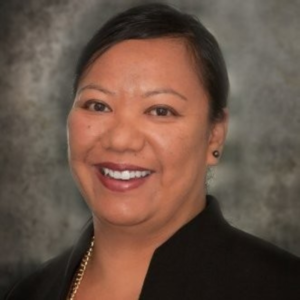 Leilani Frew
Leilani Frew
Deputy Secretary – Financial and Commercial, Te Tai Ohanga
Leilani Frew is currently a Deputy Secretary, Financial and Commercial in Te Tai Ōhanga – The Treasury and is responsible for overseeing the NZ Government’s activities and performance in the capital and export credit markets, investments in infrastructure and urban growth and ownership interests in the Crown’s commercial entities and financial institutions. With a career spanning over 25 years, she is a respected senior executive with extensive global infrastructure, commercial and finance experience having held executive leadership roles held a number of leadership positions in both the private and public sectors.
 Kathryn Byrne
Kathryn Byrne
Chief Strategy and People Officer, TASK Group
Speaking from my own experience, in Tech and People leadership, there are two key aspirations that I have for the Women of Aotearoa New Zealand:
1. Champion the democratisation of Tech
As technology and automation continues to change and replace jobs, there is a high likelihood that traditional female careers will be impacted most severely. I am a big supporter of the push to encourage girls into STEM subjects throughout their education. Maintaining the support for engineering, maths and technical skillsets is essential if diversity in Tech businesses is to be achieved. However, I use the word ‘democratisation’ of tech deliberately. As an arts student, my skills are often deemed to be an anomaly in tech leadership. Yet, skills such as understanding a problem, creative thinking and ‘putting the customer first’ are essential but currently underplayed in the broader dialogue regarding their value-add in Tech. For instance, building ethical frameworks for customer data usage is just as important (if not more) as the IP that is developed by a software engineer. My aspiration for the Women of Aotearoa New Zealand is that we think about STEAM and not forget the role that the “A” for “Arts” can play. Exposure to all subjects is key but nurturing talent and building pathways should not be narrowed to ensure that girls see potential in their future regardless of where their interests or skills come from. Diversity goals in Tech can be met through embracing the different contributions we can all make.
2. Spearhead the future of work
I think it’s incredible to reflect on the role that women have played in the shift towards hybrid working. I’ve found that the women of Aotearoa New Zealand have often had greater experience of different work types prior to COVID, where they had to navigate balancing factors such as productivity, wellbeing and career development. My second aspiration is to harness this superpower over the next few years and have women continue to lead the charge in breaking down the remaining barriers (such as removing the hurdles to remote worker promotions) and creating new ways of working (such as more inclusive team norms) so Aotearoa New Zealand can showcase the change to high performing hybrid work on a global level.
This will require focused effort on some fundamentals, starting with the simple concept of allyship. The “quiet quitting” phenomenon is happening at higher rates in female leadership roles, versus male. This is partly due to burnout and partly due to women placing a greater demand on businesses in terms of DEI actions. Replacing ‘quiet quitting’ with greater public conversation from female leaders and their allies, will set the stage for greater acceptance of change.
Building the confidence to speak out and the skills to lead change requires the accessibility of female leadership education or training programs to be improved, both locally and internationally. Currently the majority of programs are tailored towards the privileged few who work in businesses who can help to fund the opportunity. Providing aspiring female leaders with the ability to learn from others, gain exposure to global knowledge and build their networks can support both their personal and Aotearoa New Zealand’s national interests over time.
 Jacqui Walshe
Jacqui Walshe
CEO, The Walshe Group
Jacqui grew up in the tourism industry, the Walshe family now has three generations in travel and tourism. She holds a Bachelors degree in Business, an MBA and is a qualified Company Director GAICD. In 2017 she became Chairman of The Walshe Group and its parent company Southern Travel Holdings. Following six years as Deputy Chairman of Australian Tourism Export Council, Jacqui was appointed to the Tourism Restart Taskforce set up by the Australian tourism sector in 2020 during the period of international border closures and was the tourism representative on the Ministerial Advisory Council to the Australian Federal Minister for Trade, Tourism and Investment 2020-2022.
Jacqui was appointed a Tourism New Zealand board director in August 2022.
 Tanya Houghton
Tanya Houghton
CEO, Farmlands
I am so incredibly proud of the wahine in our country. We are a force to be reckoned with, I believe that a society that enables 100% of its population to be fully engaged, can be truly successful. We still have a long way to go before we achieve true equality, that’s what I am passionate about influencing.
One of my biggest goals is to see more women in leadership positions across all industries. Whether it’s in politics, business, or in any other field, women have so much to offer and we need to make sure that our voices are heard. I believe that by supporting and encouraging women to take on leadership roles, we can create a more diverse and inclusive society that benefits everyone. It shows others what can be achieved and has a direct flow on into future generations.
Access to education is required to achieve this. I believe that every woman should have access and support to the education and training they need to pursue their dreams and achieve their goals. Whether it’s through traditional academic channels or vocational training, we need to make sure that women have the skills and knowledge they need to succeed in whatever path they choose.
Finally, I want to see more women stepping up to take on traditionally male-dominated roles. We need more wahine farmers, builders, engineers, and tradespeople. These are important industries that have historically been harder to enter for women, that is changing. By breaking down these barriers and encouraging women to pursue careers in these fields, we can create a more diverse and resilient economy.
In conclusion, my aspirations for the women of New Zealand are simple: I want to see more women in leadership roles, more women with access to education and training, and more women breaking down barriers in traditionally male-dominated industries. I know that together, we can achieve these goals and create a better, brighter future for all of Aotearoa New Zealand.
 Laura Cibilich
Laura Cibilich
CEO, RUN Agency
Rather than merely competing on the same playing field, Laura believes women have the power to change the business and entrepreneurial landscape entirely. Not one to do things the conventional way, she promotes cultural and emotional prosperity alongside financial to create a workplace culture that embraces Indigenous values and the innate strengths and instincts of women.
She is a champion for empowering women in leadership. As a member of Coralus (formerly SheEO) since the inception of the Aotearoa chapter 5 years ago, Laura contributes to a perpetual fund supporting women-owned ventures each year. At the same time she also understands that equity is not just a trophy to fight for in the boardroom but an ongoing, grassroots interrogation of the status quo. For this reason, 85% of Run’s employees are Māori and Pasifika women, with a focus on the development of young wāhine creatives and designers.
As a business leader and the mother of two young Māori boys, Laura understands that people flourish when they can bring their authentic selves to a role or project, no matter their cultural background or identity. Her vision for women in business is a greater understanding of the role Tangata Tiriti can play in Aotearoa, and their responsibility to throw down the net behind them (doing away with the ladder as only one person at a time can climb it) to empower women from all walks of life.
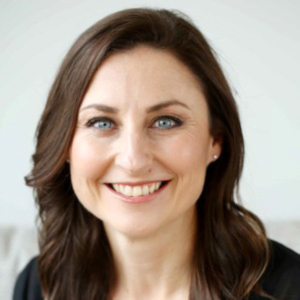 Jennie Wyllie
Jennie Wyllie
CEO, Netball New Zealand
My aspiration for the wāhine of Aotearoa is that they have equality of choice and opportunity. On the global stage, Aotearoa will differentiate itself as a country where women are valued and visible.
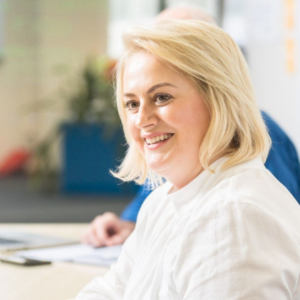 Paula Jackson
Paula Jackson
Director, MetService
My aspirations for women in Aoteoroa can be summed up as follows:
- That women have pay equity with men in the same position
- That women will not be treated differently to anyone else in the workplace, or anywhere for that matter
- That women will not be bullied, sexually harassed or be subjected to chauvinistic behaviour
- That women will be presented with the same opportunities as men in any workplace
- That women will be in positions of leadership of influence politically, socially and in business. I truly believe that when there are more women in leadership positions it will create more opportunities for all women.
- That women are given the room to demonstrate their natural empathy and create awareness of the power of kindness and inclusion
- Acknowledge that women represent just one facet of diversity in Aoteoroa
- That women can mentor and counsel other women and create conversations that inspire.
- That women take time out for themselves, particularly as they get older and/or progress in their career and have household and family responsibilities. Making sure there is really good balance with work and homelife. Make sure partners – and kids when they can – do their fair share. Even in the 21st century, just by our nature, we can still default to stereotypes!
- That women will support and uplift other women to reach their personal and professional goals and aspirations. When we support each other to be our best, we can achieve amazing things.
 Tania Pouwhare
Tania Pouwhare
General Manager, Auckland Council
Tania is passionate about equity for women and girls and has a MA in Women’s Studies from the University of Auckland. Prior to working at Auckland Council, she lived and worked in Dublin before settling in London for a decade where she was head of policy and campaigns at the Women’s Resource Centre – the UK’s leading umbrella organisation for the women’s NGO sector and one of Britain’s most admired charities. Before her move abroad, she worked for the National Collective of Independent Women’s Refuges here in Aotearoa in a policy role.
 Farah Herbert
Farah Herbert
Owner & CEO, Cybercraft
My key aspirations for women in Aotearoa, specifically in the technology sector, are the following:
Bridging the Gender Gap in STEM
Despite progress in recent years, women remain underrepresented in science, technology, engineering, and mathematics (STEM) fields. My aspiration is to see an equal distribution of women and men pursuing careers in STEM, with a focus on encouraging young girls to develop their skills and interests in these areas. Initiatives such as scholarships, mentorship programs, and targeted educational programs can help create a more inclusive STEM community.
Women in Leadership and Decision-Making in Tech
To create a more equitable technology landscape, I aspire to see more women in leadership roles within the sector. This includes promoting women to executive positions, board seats, and as founders of start-ups. Encouraging diversity in leadership will foster a broader range of perspectives and enhance innovation in technology.
Closing the Gender Pay Gap in the Tech Industry
The technology industry is not immune to the gender pay gap issue. My aspiration is to eliminate pay disparity by ensuring equal pay for equal work in the tech sector. By promoting transparency in pay structures and advocating for fair compensation policies.
Support for Mothers and Caregivers in Tech
Balancing work and family life can be challenging for women in technology. By acknowledging and addressing the unique challenges women face in the industry, we can help them thrive professionally and personally.
Promoting Women in Cybersecurity
As the CEO of Cybercraft, I am particularly passionate about encouraging women to pursue careers in cybersecurity. This field is crucial to the digital economy and offers excellent opportunities for growth and advancement. My aspiration for the future is to create a diverse and inclusive cybersecurity workforce by providing targeted education and training programs, mentorship opportunities, and outreach initiatives aimed at women.
 Sophia van Zijl
Sophia van Zijl
Chief People Officer, JBWere
To achieve true gender equality – where our society values and supports the contributions of all individuals, regardless of their gender. This includes addressing barriers such as the gender pay gap, representation in leadership positions, and access to affordable childcare that reflects women’s work schedules. Women should have the opportunity to lead and make decisions in all areas that affect our lives, be fairly compensated for their work, and be able to balance work and family responsibilities.
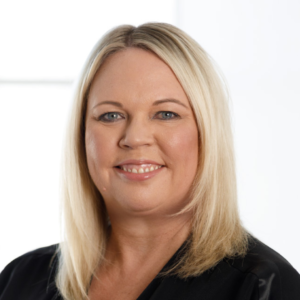 Catherine (Cath) Shirley-Brown
Catherine (Cath) Shirley-Brown
Partner, Russell McVeagh
My main aspiration for the women of Aotearoa New Zealand is that they will, in the near future, be able to live and thrive in a fully inclusive society where gender need not even be part of the inclusion discussion anymore – because we hopefully would have moved so far past that point. I think we are getting there, with a lot of momentum both here and in many other countries over the last five years or so, but there is more work to be done. Having more women in leadership is part of the solution and the needle is shifting in that respect for many organisations in Aotearoa, which is heartening to see. Ensuring the more nuanced needs of females and gender diverse people (as well as other minority groups) are met is another part of the solution which appears to be gaining traction in Aotearoa New Zealand. In the industry I work in, law, there are far more women entering the industry after university than what is represented at the leadership level, so addressing the institutional and systemic barriers to progression and being able to have open and honest conversations about why that is, will be fundamental to making the industry, as well as many others and Aotearoa as a whole, more equitable.
Another aspiration of mine for the women of Aotearoa is that they will learn how to move past any self-doubt that may be holding them back from pursuing the life they truly want. I think there are too many outdated expectations on women, both from society and that women put on themselves, which hold them back professionally and personally, and as a result there are many unhappy women out there trying to live up to what is expected of them, rather than listening to their inner mentors and going after something that is authentic to them.
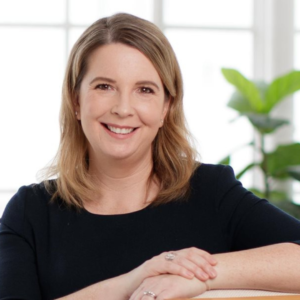 Kirsten Massey
Kirsten Massey
Partner, Russell McVeagh
One of my aspirations for the women of Aotearoa New Zealand is that they learn from an early age the power of being a woman. Rather than focussing on the challenges of being a woman, I would love to see young woman taught to focus on the greatness that comes with the territory. Empathy, intuition, collaboration and the ability to take a subtler approach where required are vitally important attributes for any leader in the workforce and beyond.
That is not to say that there is not work to be done to identify and remove the structural barriers that exist in our society that negatively impact women. We’ve come a long way on this in the last decade, but there’s still plenty of work to be done to even the playing field, in particular when it comes to c-suite and other leadership roles. One part of the solution is that organisations take an honest look at, and have open conversations about, why more women aren’t getting or seeking leadership roles. I am proud of the work Russell McVeagh is doing in this space and keen to do what I can to support this work more broadly across the legal industry.
 Polly Pope
Polly Pope
Partner, Russell McVeagh
Polly Pope is one of New Zealand’s leading commercial disputes lawyers. She is also an outstanding partner at Russell McVeagh and has won accolades for her influence in paving the way for women and driving diversity and inclusion in the legal profession and broader business community.
Polly recently completed a two-year term as Chair of the Russell McVeagh Partnership in February 2023, having been uncommonly re-elected for a second term in 2022 in merit of her notable leadership position in the firm and profession. She has been influential and heavily involved in much of the work done over the last five years on the firm’s culture programme.
 Tracey Taylor
Tracey Taylor
CEO, Yellow New Zealand
I am very passionate about enabling positive change for women in Aotearoa, around inclusion, opportunity and social change.
I believe empowering women requires creating more pathways and rungs on the ladder, to ease the climb particulary in business, but also in whanau and community. To ensure we aren’t limited or feel confined to a specific pathway that isn’t the perfect fit, and that our options are as wide and varied as the lives we get to live outside of them.
We need to be the change. To be allies to one another, to open new doors, to create and hold spaces, and back each other. Just as it’s important to have men advocating for us, we need to uplift, empower and advocate for ourselves. To act as a voice for those that are feeling unseen and unheard, and to empower and support those who are making their voices heard. Being an ally takes many shapes and forms, with mentorship, policy work, and advocating for one another, just a few of them.
As women, it’s our responsibility to have our voices heard and be seen.
 Jacinta Ruru
Jacinta Ruru
Distinguished Professor of Law, University of Otago
Jacinta Ruru is a Distinguished Professor of Law at the University of Otago where she leads in researching how state legal systems should reconcile with their Indigenous peoples, their laws and knowledges. Her distinct research programmes include: 1) Indigenous peoples’ legal interests to own, manage and govern lands and waters; 2) creating a bicultural, bilingual and bijural legal education and legal workforce for Aotearoa; 3) Te Tiriti o Waitangi, governance and regulation of professions; 4) mātauranga and research interface. She has skills in leading large interdisciplinary (mostly with social sciences) and comparative research (with Australia, Canada, United States and the Nordic countries) and highly values working with Indigenous communities.
 Kate Tulp
Kate Tulp
ServiceNow, NZ Country Manager
My hope and aspiration for the women of Aotearoa is quite simply that they are confident to walk into rooms, roles, and spaces knowing that they have all the right and the support to achieve their goals. I aspire for women to have much bigger goals, and to feel they are allowed to have big dreams and big ambitions without feeling guilty or selfish for doing so. I aspire to a time where we don’t have to have an International Women’s Day to force conversations and gain commitment to action. Quite simply I want the Women of Aotearoa, the first country in the world to let women vote alongside men, to be world leaders again for having genuine equity. Equity in learning opportunities, pay, career options. Equity in support for working parents, and the growing number of working grandparents responsible for the care of their grandchildren too. Equity because we as a country know that it makes us a stronger community, a highly productive and wealthier economy, and the kind of nation where we can all thrive treating our diversity as our super power.
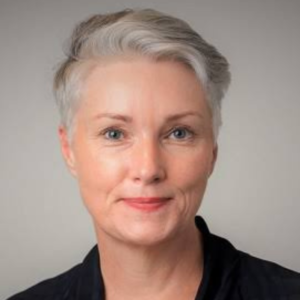
Karen Blake
Digital Health Leader, PwC
Karen is a one of New Zealand’s leading digital health experts, recognised both for her long career in the public sector in women’s health as a midwife, and for her leadership in data and digital.
She is currently the digital health practice lead and a senior Director in the Hauora (Health and Wellbeing) and Manukura (Māori Business) teams at PricewaterhouseCoopers, working across the country to enable improved health outcomes and equity of access to health care through technology, data and information. Karen has a unique skill set, blending over 20 years clinical experience with deep knowledge in health system operations and business working across New Zealand and Australia, alongside her expertise in data and digital. Her recent work in women’s health includes working with Te Whatu Ora to implement a new Breast Screening IT system, to improve access to screening for New Zealand women.
